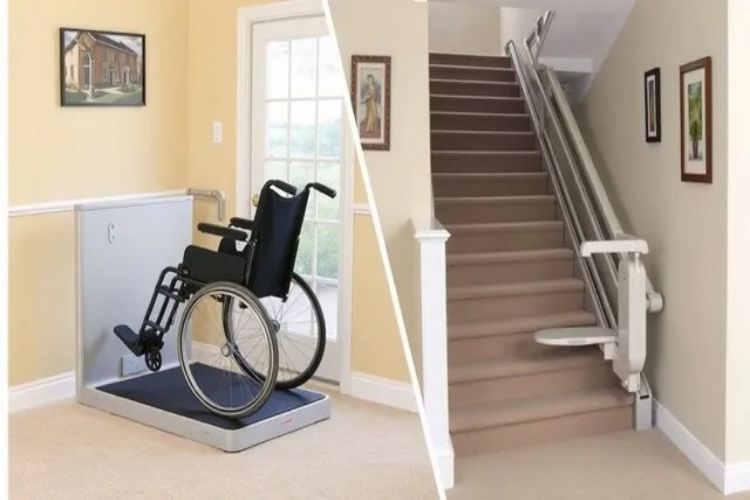Four key grants provide financial support for stairlift installations in the UK. Home Adaptation Grants assist elderly residents aged 65 and over with essential modifications. Disability Facilities Grants offer means-tested funding for home accessibility improvements. Veterans’ programs through the VA support service-connected mobility needs. Local Authority Assistance schemes vary by region, with maximum funding ranging from £25,000 to £36,000. Understanding eligibility requirements and assessment processes guarantees ideal access to these crucial resources.
Home Adaptation Grants for Elderly Residents
Many elderly residents can access government-funded home adaptation grants to help cover the costs of installing stairlifts and other mobility equipment. These grants typically cover essential housing repairs and accessibility modifications for individuals aged 65 and older who meet specific income requirements. In fact, several programs specifically provide grants for stairlifts, making them a valuable resource for seniors seeking to improve mobility at home.
Local authorities assess applications based on medical necessity and financial eligibility. The home modification process begins with an occupational therapist’s evaluation to determine specific mobility needs. Grant amounts vary by jurisdiction but can fund up to 100% of approved accessibility improvements. Priority is given to adaptations that enable seniors to maintain independence and safely navigate their living spaces.
Disability Facilities Grant Programs
Disabled individuals seeking stairlift funding can apply through their local authority’s Disability Facilities Grant (DFG) program. The grant means-tested assistance for essential home modifications, including stairlift installations.
DFG eligibility is income-based, considering both the applicant’s savings and regular earnings. Local councils evaluate household finances, property ownership status, and medical documentation confirming the necessity of adaptations.
Assessment teams conduct home visits to determine technical feasibility and specific requirements.
Maximum grant amounts vary by region, with successful applicants potentially receiving full or partial funding for stairlift purchase and installation. Processing times typically range from 3 to 6 months.
Veterans’ Home Improvement Support
Veterans who require mobility assistance can access specialized funding through various military and veterans’ organizations for stairlift installations. The Department of Veterans Affairs (VA) offers grants specifically designed for service-connected disabilities, including the Specially Adapted Housing (SAH) grant and Special Housing Adaptation (SHA) grant programs.
Military service members, both active and retired, may qualify for additional assistance through organizations like the Veterans of Foreign Wars (VFW) and Disabled American Veterans (DAV). These programs often prioritize low-income individuals and those with service-related mobility impairments, covering partial or complete costs of stairlift equipment and installation.
Local Authority Assistance Schemes
Local councils throughout the United Kingdom provide financial support for home adaptations, including stairlifts, through Disabled Facilities Grants (DFGs) and similar assistance schemes.
These means-tested grants form part of broader social housing programs designed to help residents maintain independence in their homes. The maximum funding available varies by region, with government subsidies covering up to £30,000 in England, £36,000 in Wales, and £25,000 in Northern Ireland.
Assessment criteria typically include household income, savings, and medical need. Local authorities may also offer additional discretionary funding for cases exceeding standard grant limits.

